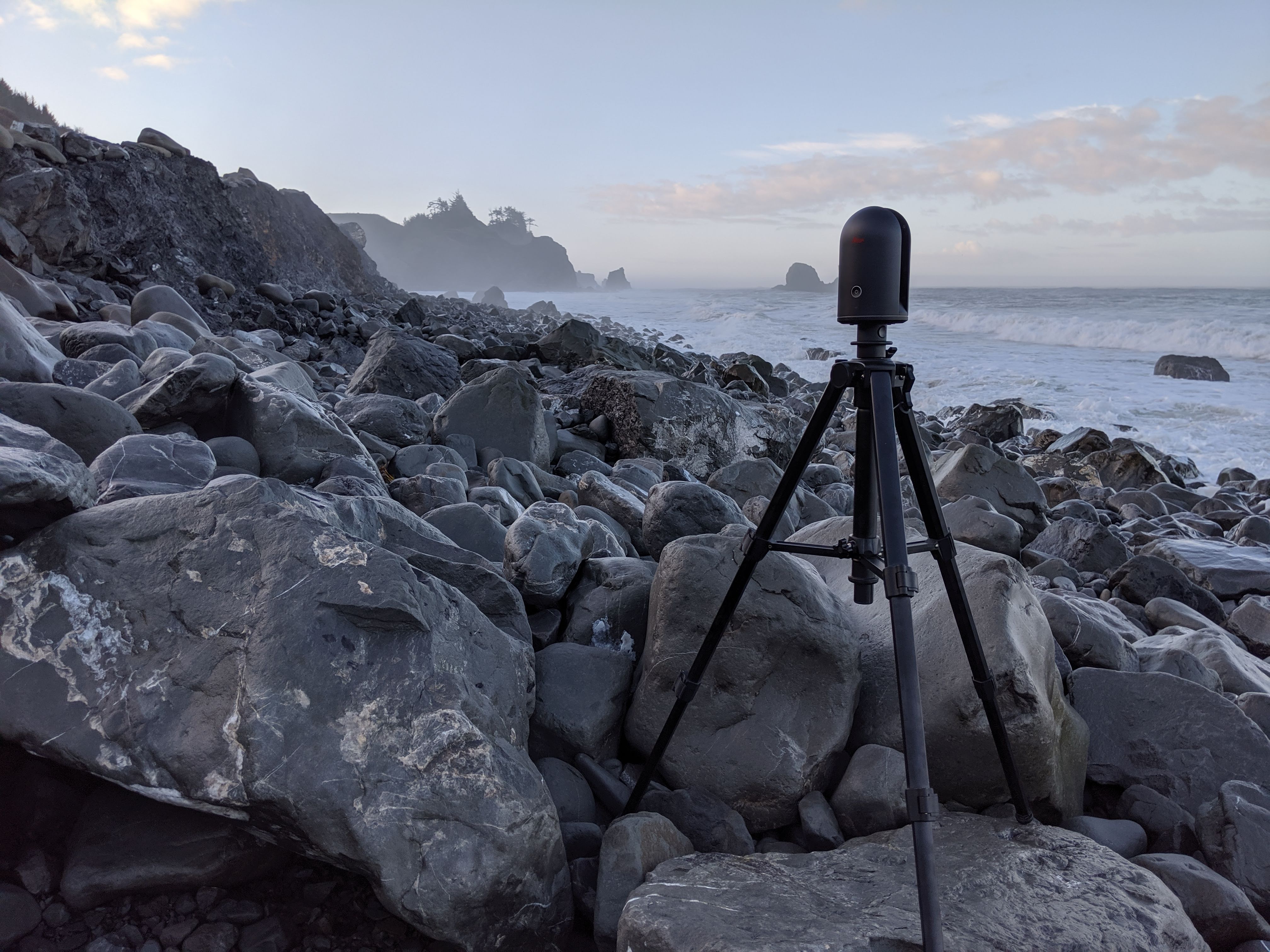Climate change is leading to more frequent and extreme weather events in Oregon, making the transportation system and the traveling public more vulnerable to natural hazards like wildfire, landslides, flooding, extreme heat, winter storms, coastal erosion, and more. The Climate Change Adaptation Program is leading an "all hands on deck" effort at ODOT to improve preparation, response and recovery from climate change challenges.
Recent Work
The Climate Adaptation and Resilience Roadmap
The Climate Adaptation and Resilience Roadmap is a broad document that provides policy guidance and actionable strategies to help ODOT institutionalize adaptation and resilience. It outlines a path forward for integrating climate change considerations into the ways the agency plans for, invests in, builds, manages, maintains and supports the multi-modal transportation system. The roadmap incorporates results from ODOT’s statewide climate hazards risk analysis, drawing from
corridor-scale risk maps of the state highway system. This information can now be used to inform project planning and prioritization by locating transportation corridors at high risk to climate hazards. The roadmap is also Oregon's FHWA-approved statewide Resilience Improvement Plan (RIP) for the PROTECT Discretionary Grant Program.
Click here for more information about ODOT's PROTECT Program.
- Find the full-length roadmap/RIP document here.
- Read an executive summary of the roadmap/RIP document here.
- Find ODOT's Climate Hazard Risk maps
here.
- Listen to a podcast on the roadmap/RIP document here.
Responding to Climate Change Challenges
Adapting to changing risks across the state requires understanding and preparing for potential consequences. Looking ahead at long-term trends and being proactive is essential to support the transportation system and its users. For example, retrofitting or increasing the size of culverts in areas with current and projected flood risk can improve adaptation to higher streamflows and more intense storms (see photo, below). These types of proactive actions can help to reduce transportation interruptions and costly infrastructure damages.
Climate Change Adaptation Research and Resilience Pilot Projects
The effort to build a more resilient transportation system is ongoing and progress is aided by research from ODOT, its partners and tribal representatives. ODOT’s past and present pilot projects allow the agency to test and learn about resilience and adaptation best practices in planning, design and construction before using them more widely. The photo below shows monitoring of eroding sea cliffs, improving the agency's understanding of risks to nearby transportation infrastructure (photo credit: Andrew Senogles).

Current Projects
The list below includes some of the current research that supports adaptation and resilience improvements across the state. For project details, find
active research study details here.
-
US Highway 101 Coastal Hazard Vulnerability and Risk Assessment for Mitigation Prioritization
-
Predicting Near Real-Time Post-Fire Landslide Debris Flows Along ODOT Corridors
-
Real-time Surface Monitoring for Improved Safety, Response and Repair
-
Automated Wildlife Detection for Wildlife Vehicle Collision Reduction
-
Real-Time Continuous Bridge Scour Monitoring for Improved Safety and Cost Savings
-
Drone LiDAR monitoring of highest risk rockfall and landslide locations.
Past Projects
Coastal Hazard Vulnerability and Risk Assessment
ODOT assessed climate change vulnerability and related landslide, erosion and flooding risks to US Highway 101. A primary goal of this research was to prioritize areas for shoreline protection or other adaptation measures. Learn more about the project and view an online map tool
here.
Climate Change Informed Infrastructure Design Pilot Study
ODOT led a pilot study to test
a newly developed NCHRP guide that applies climate change information to assets like roads, bridges, and tunnels. This pilot tested the guidelines by applying them to the Millport Slough bridge that crosses the Siletz River. The results show that the seismic standards applied to the Millport Slough bridge are also adequate to withstand future projected flooding and scour. Broadly, the pilot made clear the essential need for improvements to localized climate projection data.
Landslide Detection Research
Landslides are frequent hazards that affect the operation, maintenance and construction of state highways, resulting in negative economic, environmental and social impacts for Oregon communities. ODOT worked with experts at Oregon State University to study and map landslide risks associated with heavy precipitation and seismic impacts along critical corridors. One of the primary goals of this work included detection and selection of priority areas in order to optimize resilience.
More Information